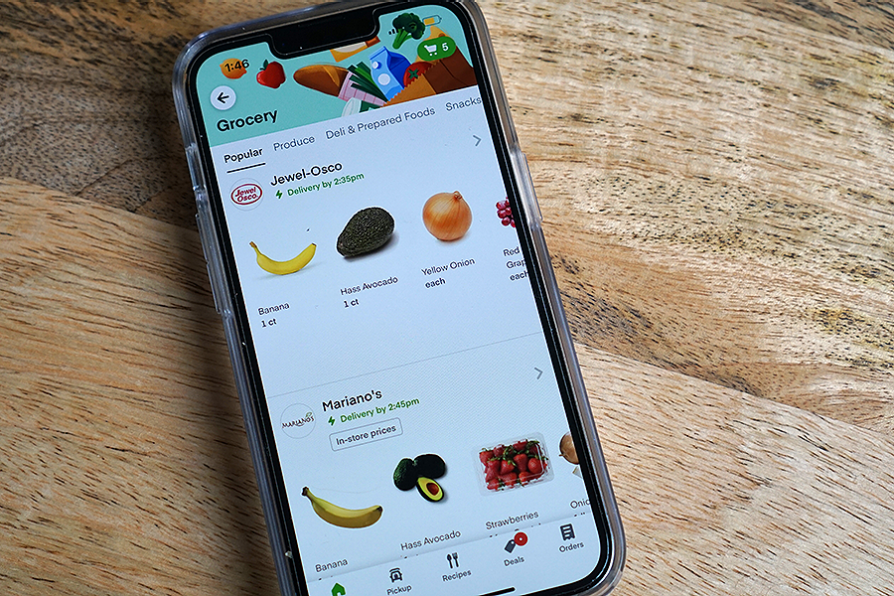By Annette Pinder
University at Buffalo researchers who study what makes people buy and eat healthy foods have teamed up with Instacart to test nutrition intervention programs for families at higher risk for obesity. The project, referenced in an announcement by the White House will enroll 70 families, about half of whom will be low-income.
Instacart will provide a financial contribution and collaborate with UB to conduct research using Instacart Health tools. Based in the Jacobs School of Medicine and Biomedical Sciences at UB, the partnership builds on decades of pioneering work in behavioral medicine and nutrition in the Division of Behavioral Medicine of UB Department of Pediatrics.
Stephanie Anzman-Frasca, PhD, principal investigator, said, “The goal of our project with Instacart is to make it easier for parents to make healthy choices while grocery shopping.” Sarah Fleisch Fink, Instacart’s director of policy research and development, said, “At Instacart, we believe every family should have access to the nutritious food they need to live healthy lives.”
In a paper published last November in Obesity, Anzman-Frasca and co-authors tested how providing healthy recipes and online shopping carts preloaded with ingredients for those recipes would impact the food choices of adults who have Type 2 diabetes or are at increased risk for it. It was the first randomized trial of a defaults-based grocery shopping intervention designed for adults at risk for or diagnosed with Type 2 diabetes. People in the group who received pre-filled, “default” shopping carts had the option of removing and replacing the healthy items placed in their carts. However, grocery purchases were higher in nutritional quality in that group compared to online and in-person shoppers who didn’t have their carts pre-filled.
Anzman-Frasca said there is evidence that modifying the default or automatic choice has strong effects on decision-making, such that the recommended healthy foods make it from the online shopping cart to home. The project will begin recruiting participant families in Western New York this summer, using Instacart Health technology for the online shopping and incorporate recipes created by registered dietitians to promote health. Families will also be asked about their current eating habits, including any dietary restrictions and their favorite foods, so that they can receive recipes that fit with their food preferences.
Specific outcomes the researchers will be looking at include the nutritional quality of grocery purchases, the home food environment, and parent and child dietary intake among families receiving the “default” program compared to those receiving the healthy recipes but no pre-filled grocery carts.
Collaborators involved in the project include Leonard Epstein, PhD, SUNY Distinguished Professor and chief, Division of Behavioral Medicine in the Department of Pediatrics; Lucia Leone, PhD, associate professor, Department of Community Health and Health Behavior in the School of Public Health and Health Professions; and The Independent Health Foundation.












